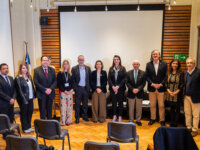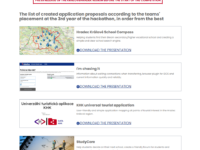The study integrates Artificial Intelligence (AI) techniques, and a digital twin methodology to process and interpret urban data streams derived from citizen interactions with the city's coordinate-based problem mapping platform. Using an interactive GeoDataFrame within the digital twin methodology, dynamic entities facilitate simulations based on various scenarios, allowing users to visualize, analyze, and predict the response of the urban system at
Case Study Library
Where innovations are collected and shared to disseminate and replicate good ideas

Innovations:
0
This website, as well as any data and map included herein, are without prejudice to the status of or sovereignty over any territory, to the delimitation of international frontiers and boundaries and to the name of any territory, city or area.
SignAvatar's long-term vision is to enable real-time sign language generation, opening doors to multiple applications such as TV, Social Media, Video calls, Online courses, and many applications in the public sector.
Our first product is TransportSign, a system for auto-generated service information in Sign Language for Airports and Train Stations. By transforming audible announcements and on-screen text into SL, we enable more than 460 Million Deaf individuals around the world to travel freely
Futures and foresight methods are fundamental tools to inform decision-making and public policy in order to consider a wide range of future possibilities. The creation of a Latin American Future Network seeks to articulate existing efforts from many countries and enhance capacity building in the region, since capacities are still not well developed. This will benefit citizens by improving public sector services and future-proofing policies aimed at the population wellbeing.
Case Study
Protected: Internet WiFi gratis para mejorar el desarrollo tecnológico, educativo y social de la…
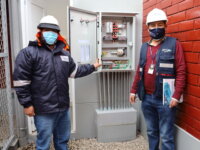
The Pasco Regional Government proposes free WiFi to enhance access to information and education in parks and squares, reducing digital divides. Customized home pages and user management aim to close regional digital gaps, fostering educational, professional, and commercial activities.
Case Study
Protected: Solución de Soporte Tecnológico para el Escrutinio (SST) con Certificación Digital…
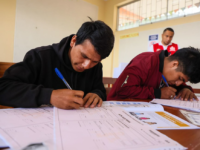
The Technological Support Solution for Scrutiny(TSS),developed by ONPE, modernizes Public Management and Digital Government. During elections,poll workers manually fill out multiple official records. The TSS digitalizes votes and produces printed records, simplifying their task. The results are encrypted and securely transmitted to the central office, speeding up their delivery. Additionally, digital certificates were introduced for electronic signatures, giving legal value to the generated PDFs
The UNDP in Ukraine training on a human rights-based approach in public policy design helped public servants who are involved in the digitalisation sphere learn how to develop state policies and electronic services based on principles of human rights and gender mainstreaming. It helped them dispel myths and learn the basic requirements, which resulted in more inclusive public services developed for Ukrainian citizens.
Initiative that promoted the publication of open data from public entities and encouraged its effective use by citizens. The initiative promotes open public data through the National Open Data Platform, meeting global standards and gaining recognition from organizations like OAS and ILDA. Collaboration enhances entities' international standing, fostering open data adoption. Emphasizing data openness, it spotlights leading institutions nationally and regionally, encouraging transparency and…
Case Study
Portal de Contrataciones Abiertas de la Compra Pública -Open Procurement Contracting Portal
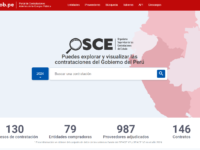
The Organismo Supervisor de las Contrataciones del Estado (OSCE) supervises public procurement, ensuring integrity and efficiency. Its Portal de Contrataciones Abiertas de la Compra Pública plays a crucial role, improving transparency with international standards. By implementing the Open Contracting Data Standard (OCDS), it provides detailed access, benefiting entities, suppliers, citizens and civil society.
The "Ficha Única del Proveedor" created to address the lack of transparency in public procurement, consolidates key data about state suppliers, including composition, representatives, and legal background. This innovative tool empowers citizens and service users by providing detailed information, contributing to transparency and efficiency in public procurement. Verification of sanctions and additional records further enhances its utility.
The data portal is a central data point for the public. It provides citizens with high-quality open data of the region, bringing it closer to the general public in user-friendly formats, in the form of map outputs. It is an innovative solution of the Hradec Králové Region for sharing and visualizing data from publicly available sources and data of the region. It ensures transparency, openness and accountability of public administration.

